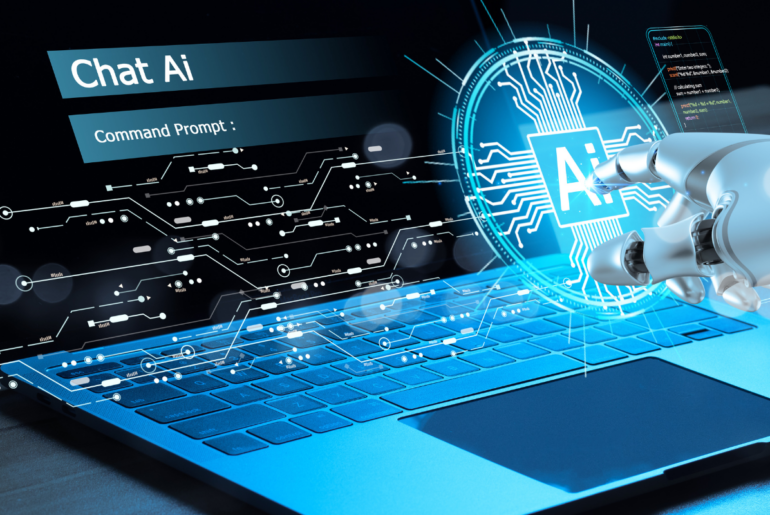The artificial intelligence (AI) revolution has been heralded as the most disruptive technological force since the digital age dawned. With generative AI (GenAI) models like ChatGPT and GPT4, Claude, and Gemini capturing global attention, businesses across sectors are scrambling to explore and harness these emerging capabilities.
However, amid the AI gold rush, a crucial truth is crystallizing – for organizations to truly innovate and drive transformative impact with AI, deep domain expertise and industry-specific knowledge about use cases are non-negotiable prerequisites.
What Are GenAI Use Cases And How Do I Identify Them?
At their core, effective AI use cases are focused business initiatives that harness various technologies to achieve specific, measurable outcomes. They go beyond just implementing a single technology solution, instead centering on addressing core business needs or challenges through a strategic combination of tools and strategies. Critically, a use case is not simply a discrete offering like a chatbot or an isolated technology project. Rather, it’s a holistic approach that aligns technological capabilities with broader business objectives, enabling quantifiable results.
The most impactful use cases are driven by a clear understanding of organizational pain points and a vision for leveraging emerging technologies like GenAI to create innovative solutions. By identifying and pursuing well-defined use cases, businesses can unlock AI’s full potential while delivering tangible value.
GenAI use cases broadly fall into three principal categories: productivity, business function, and industry-specific.
Productivity use cases streamline work tasks like report summarization, job description generation, or code creation by integrating GenAI features into existing applications. Many derive value from pre-trained models.
Business function use cases involve integrating AI models with proprietary corporate data or specific departments/functions. Data governance is crucial, necessitating integration with established enterprise platforms.
Industry use cases generally require extensive customization to offer significant value to larger enterprises. These specialized vertical applications entail tailored architectures and implementation efforts, leveraging unique data assets.
Preparing For AI Everywhere: The Great Data Grab
The “Great Data Grab of 2024” underscores the urgency around the need for preparation. AI providers are aggressively expanding their data repositories and platform portfolios through acquisitions, partnerships, and arduous self-collection efforts. The goal? To amass as much raw training data as possible to feed increasingly powerful AI models spanning industries and use cases.
This explosive growth in data and AI assets presents a double-edged sword. The sheer abundance opens up tantalizing opportunities to experiment and push boundaries. Yet, it also manifests a bewildering sprawl of options that can just as easily lead businesses astray if not approached with laser-focused strategy and domain-specific expertise.
The stakes are rising exponentially. IDC’s industry predictions suggest that by 2025, a staggering 40% of all professional services engagements will involve GenAI-augmented delivery models in some capacity. This wholesale disruption to human-delivered services will upend long-established processes, roles, and competency models. Success in this new paradigm hinges on skillfully blending cutting-edge AI capabilities with nuanced, sector-specific wisdom.
The Four Pillars of Preparation: Skills, Cost, Innovation, Governance
As organizations attempt to construct compelling GenAI value propositions, four overarching pillars emerge as focal points – skills, costs, innovation, and governance. Mature AI proficiencies in areas like machine learning (ML), natural language processing (NLP), data science, and cloud architecture are essential foundational elements.
Skills: Upskilling in core AI/ML disciplines like coding, model training, and data wrangling is now table stakes. But combining those horizontal proficiencies with rich, verticalized wisdom is what unlocks exponential value creation. A manufacturing AI wizard intimately versed in supply chain complexities and constraints will run circles around a generalist.
Cost: The underlying economics of productionizing and scaling advanced AI workloads at an enterprise level can be extremely complex and capital-intensive. Here, granular knowledge of industry-specific processes, inefficiencies, variable cost drivers and fluctuating demand signals is indispensable. Those insights ensure AI investments remain sustainable and tightly aligned with the pragmatic financial realities of a given business sector.
Innovation: AI is a potent catalyst for digital innovation, promising to streamline and augment development processes. But a relentless focus on measurable business results – not just shiny new tech for tech’s sake – must persist. Seasoned industry veterans skilled at mapping AI tools to specific sectoral pain points and KPIs help maintain this all-important outcomes-driven discipline.
Governance: Robust AI governance programs and rigorous data governance guardrails are no longer nice-to-have footnotes; they’re essential safeguards in an era of widespread AI adoption. Authoritative domain experts play a pivotal role in ensuring these frameworks holistically account for sector-specific risks, compliance requirements, ethical nuances, and regional regulatory variances from the outset.
Lest we forget, these escalating talent and policy demands are unfolding against a backdrop of continued infrastructure turbulence. Industry analysts forecast that well into 2025, enterprises will still be contending with degrees of uncertainty, cost volatility, and accessibility constraints surrounding the foundational compute, network and storage resources underpinning AI/ML workloads.
Navigating these intersecting infrastructure, skillset and governance complexities in pursuit of sustainable AI-driven innovation will require a depth of industry-specific intelligence. From evaluating build-vs-buy infrastructure options to right-sizing investments to mitigating sector-specific risks, vertical expertise is mission-critical.
Riding the AI Revolution: Essential Guidance
So as the AI revolution kicks into an even higher gear, here are some essential guideposts for businesses looking to leverage GenAI effectively:
Understand: Don’t treat AI as an isolated technological sphere. Immerse yourself in the unique cultural, operational, and financial dynamics, legacy constraints, customer/user pain points and market opportunities within your specific industry vertical. Your customers, employees and partners demand relevance and context, not generic AI solutions.
Prioritize: Approach GenAI use case exploration through the lens of tangible, high-impact business outcomes. What are the most pressing strategic challenges specific to your domain? Prioritize accordingly, while carefully weighing factors like potential costs, risks, downstream adoption barriers and competitive implications. Provide crisp, industry-contextualized starting points and strategic roadmaps to chart the course.
Establish: Certainly, it’s crucial to establish the right technical foundations like data-centric platforms, cost-effective AI infrastructure environments and robust API-driven integration frameworks. But recognize that these critical enablers must be purpose-built and customized to synchronize with the unique operating models, skills profiles and technology stacks present in each vertical.
The AI age represents an era of incredible potential and opportunity. But it’s also one of unprecedented complexity – a reality that demands a sharp re-think of how companies acquire, nurture, and apply talent and domain expertise.
By treating specialized industry knowledge as a core competency on par with AI/ML capabilities themselves, businesses can firmly establish themselves as indispensable leaders driving the next waves of sectoral transformation.
After all, deep insight is the spark that will ultimately ignite an organization’s capacity to innovate. Generic AI will only get you so far. Expertise is what allows you to separate noise from signal and elevate AI into a tsunami of outcomes-driven impact.




